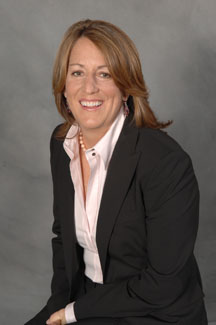Out for Justice: September 2012
LGBTQ Rights Take Center Stage at the Supreme Court: What to Expect Tomorrow and Beyond
NCLR Works on Landmark Legislation Advancing LGBTQ Equality
A Mother’s Love: A Gay Student’s Mother Speaks Out to Protect her Son
NCLR Helps Launch Fund Helping LGBTQ Dreamers Pay for Fees “Deferred Action”
From Kate: An End to Another Great (and Busy) Summer
Whoever coined the phrase the “dog days of summer” never worked at NCLR. During the heat of the summer months—except of course in chilly San Francisco—NCLR’s team was as busy as ever.
We were filing new lawsuits seeking justice and vindication, helping to move innovative new legislation to protect our community, and answering legions of calls and questions from LGBTQ folks seeking advice, answers, and resources across the country.
Just a few weeks ago, we filed a federal lawsuit on behalf of 17-year-old Dynasty Young, who was relentlessly harassed by his classmates at his school in the Indianapolis Public School District, but district leaders did very little to protect him—even suggesting that he was the problem for being gay and out.
I’m sure many of you have already heard about some of the landmark legislation that we’re working on, including three groundbreaking bills in California that we hope will lead to similar protections in other states. They are all incredibly important to each and every one of us, and you can read more about them below.
We’re also excited about some of the new leaders who have joined our team, including longtime LGBTQ equality leader Geoff Kors, who began working as our Senior Legislative and Policy Strategist in late August.
I’m also extremely pleased to announce that Shannan Wilber, one of the nation’s leading youth advocates, will be joining our team at the start of the New Year to become our new Youth Project Director.
We have never been busier. And you know, I am not sure we would have it any other way.
Thank you for your support, which makes all this work possible.
With deep gratitude,
LGBTQ Rights Take Center Stage at the Supreme Court: What to Expect Tomorrow and Beyond
By Christopher Stoll, Esq.
NCLR Senior Staff Attorney
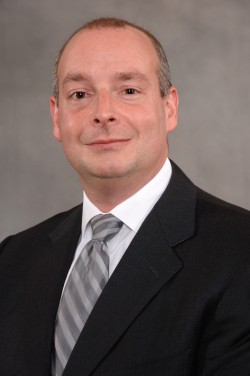
Depending on what the justices do over the next several weeks, marriage equality may soon be restored in California, the Court may be on its way to striking down a destructive and discriminatory law that denies federal benefits to every married same-sex couple in America, and an important precedent about same-sex domestic partners could be set. So here’s a breakdown of what to expect.
The Supreme Court Conference
First, some background: The Supreme Court is not required to accept all the cases it is asked to review. In fact, it rarely accepts more than 100 or so of the thousands of cases it is asked to hear each year. The justices hold a conference several times a month in which they vote on whether or not to accept cases that they have been asked to review. If they take a case, they set the case for argument within a few months and generally issue their decision no later than the last day of the term, in June. If they do not accept a case, the decision of the lower court stands and becomes the final ruling in the case. The justices also have the option to postpone deciding whether to take a case and consider it at a later conference.
The justices will hold their first conference of the new term today. It’s a lengthy agenda, since it includes all of the cases that the Court has been asked to review since they held their last conference before the summer break.
The Cases
Three of this year’s potential landmark LGBTQ equality cases are up for consideration. The first is the decision of the Ninth Circuit court of appeals earlier this year to uphold Judge Vaughn Walker’s 2010 ruling striking down California’s Proposition 8, which banned marriage for same-sex couples in that state.
The second is a decision from the U.S. District Court in New York striking down Section 3 of the so-called Defense of Marriage Act, which prohibits the federal government from recognizing the legal marriages of same-sex couples for any purpose, such as Social Security spousal benefits. The Court has also been asked to review three other challenges to DOMA, and those cases will be on the Court’s conference calendar in the coming weeks.
The third is another Ninth Circuit ruling, which said that an Arizona law that stripped domestic partner benefits from state employees is very likely unconstitutional, so Governor Jan Brewer cannot enforce the ban on benefits until the federal courts issue a final decision in the case.
What Could Happen
The justices’ conference is completely secret. No one is ever told how any justice voted, except in rare cases where a justice writes a public dissent expressing disagreement with the Court’s decision to turn down a case. The public does not find out whether the Court decided to take a case until it issues an order either granting or denying review.
If the Court decides today to take any of the three LGBTQ rights cases on the calendar, it could announce as early as tomorrow morning that they have been accepted, and those cases will then be on their way to a Supreme Court decision by June of 2013.
Most observers (myself included) think it’s very likely that the Supreme Court will take at least one of the DOMA cases that are up for consideration over the next few weeks. With the Prop 8 and Arizona cases, it’s more likely that the justices will let the lower court rulings stand.
What It Means
O.K., I know what you’re thinking now: Come tomorrow, if the Supreme Court
hasn’t decided to take the Prop 8 case, it’s over, and marriage will be legal
again in California. Time to celebrate!
Well, not quite. Keep that champagne corked for just a little bit longer.
There’s a confusing twist here. The Court usually releases the list of cases in which it has denied review at 10 a.m. on the Monday following the conference. Normally, conferences are held on Fridays, so there’s not much of a delay, and we find out on the same day which cases have been accepted, which cases have been declined, and which ones are being held over for a later conference. But this first conference after the summer is being held on a Monday. That means that although we could know as early as tomorrow which cases were accepted, we will have no idea until Monday, October 1 whether the remaining cases have been turned down, or whether they have been rescheduled for consideration at a later conference.
Translation: If the Court announces tomorrow that it is accepting some of the cases from today’s conference, but the three LGBTQ equality cases do not appear on that list, we will still know precisely nothing about whether the Supreme Court is going to take them. We will not find out until October 1 whether the justices have voted to turn down any of the LGBTQ cases, or whether the Court is still considering whether to take them. It’s entirely possible that the Court could decide to hold off considering any of these cases until a later conference—possibly so that they can be considered at the same time as the other DOMA cases.
I know your next question, too. So what about October 1? If the Court denies review
of the Prop 8 case, is the case over? Can same-sex couples once again marry in California?
The answer is yes, but probably not for several days. Once the Supreme Court denies review, the case goes back to the court of appeals. The court of appeals’ decision does not go into effect until it issues the “mandate,” a document saying that the case is over. That would likely happen within several days after the Supreme Court’s ruling. Hopefully, more information will be available soon from state and county officials about when exactly they plan to start issuing marriage licenses if the Supreme Court does not take the Prop 8 case.
Bottom line: There’s no need to start chilling the champagne until October 1, and even then, you might have to keep it on ice for a while.
(First published in the Huffington Post).
NCLR Works on Landmark Legislation Advancing LGBTQ Equality

California Senate Bill 1172—which would protect LGBTQ youth from psychological abuse inflicted by therapists who try to change their sexual orientation or gender expression—is unquestionably one of the most important bills we have ever co-sponsored.
SB 1172, authored by Senator Ted Lieu and co-sponsored by NCLR, Equality California, and other groups, will stop state licensed mental health professionals from harming young people with these dangerous practices, which include the use of shame, verbal abuse, pornography, and sometimes even aversion training.
The California Senate and Assembly approved the bill last month, sending it to Gov. Jerry Brown to consider. You can help protect LGBTQ youth from these abusive practices—which cause long-lasting depression and have far too often resulted in young people taking their lives—by telling the governor to sign the bill into law.
It only takes a few minutes to either tweet the governor directly at @JerryBrownGov (using the #SB1172 hash tag), call his office or send an email.
Other bills include:
- CA Assembly Bill 2356, authored by Assemblymember Nancy Skinner and co-sponsored by NCLR and Equality California, is also on Gov. Brown’s desk and will enable women using known donors to use more effective and less expensive fertility procedures—the same procedures that are currently available to different-sex couples.Increasingly, same-sex couples and single women are asking trusted friends to be donors to help them conceive a child. Currently, women in different-sex relationships who seek fertility services with a male partner are able to use fertility procedures that are less expensive and increase the chance of conception, while women who seek fertility services with a known donor who is not their partner are subject to time-consuming and costly repeat testing that decreases the chance of successful conception. This bill will allow women who have unsuccessfully attempted to conceive at home with a known donor to access the same fertility services available to different-sex couples.
- CA Senate Bill 1476 is also on Gov. Brown’s desk and will allow judges to recognize the reality that some children have more than two parents.This bill, which is sponsored by NCLR and the Children’s Advocacy Institute, makes it possible for a third parent—such as a gay father who is raising a child with a lesbian couple—to have legal rights and responsibilities to protect and provide care for the child.The bill provides that when more than two adults meet the criteria to be a legal parent under existing California law, a court has the flexibility to rule that a child has three legal parents. In order to do so, the court must find that recognizing three parents is required to protect the child’s best interests.
A Mother’s Love: A Gay Student’s Mother Speaks Out to Protect her Son
Last month, NCLR filed a federal lawsuit challenging Indianapolis Public
Schools’ discriminatory treatment and failure to protect openly gay former
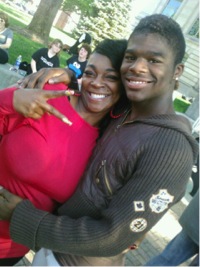
By Chelisa Grimes
No parent ever wants to hear that their child is being tormented at school, with classmates not only hurling derogatory words, but spitting on their child as they walk down the halls and throwing glass bottles.
So when my 17-year-old son, Dynasty, told me he was being targeted by his classmates at Indianapolis’ Arsenal Technical High because he’s openly gay, I did what any caring parent would do.
I turned to school leaders, expecting them to help my son.
Ever since Dynasty was young, I taught him to be proud, and to never hide any part of his individuality that makes him one of the most beautiful and unique people I have ever had the opportunity of getting to know.
I’m not just saying this because I’m his mother, but I’ve seen the rare quality that makes others flock to him, wanting to be his friend because of the confidence and happiness that he exudes.
When he joined me in Indianapolis last school year to begin his 11th-grade year, he was ecstatic, hoping to close out his high school years—which had been more than positive—with new friends.
But immediately after walking onto the Arsenal Technical campus in Indianapolis Public Schools, he was targeted by other students, who relentlessly harassed him and made him fear for his physical safety.
Like any parent, I turned to school administrators—the people who are expected to protect our children when they’re not in our homes, providing a nurturing and safe environment.
I never expected for school leaders to turn the table, blaming my son for the harassment because they thought the way he dressed was too flamboyant and even suggested that he change everything that’s beautiful about him to avoid being the target of hate.
Dynasty began to sink into depression, no matter how much I tried to help. The young man who used to brighten a room with his smile was slowly withdrawing from everyone and everything.
Again and again, as I witnessed Dynasty’s unique spark fade away because of other students’ constant harassment, I pleaded for school leaders to protect him, but they took no effective measures to help—even after other students threatened him with physical violence.
I wanted to protect Dynasty, and found what’s called a “self-protection flashlight”—a small device that emits a light, a loud noise and a weak charge when it’s set off—at a neighborhood convenience store.
It hurts me to think about the fear my son experienced last spring when he was surrounded by six other students who were going to attack him before he held the device in the air and activated it.
The noise caused the would-be attackers to scatter without assaulting him. But instead of locating the students who had threatened Dynasty, school leaders targeted my son yet again, suspending him for trying to prevent the attack, and later expelling him.
We decided to push back, and a few weeks ago we filed a federal lawsuit against the district for failing to protect Dynasty from the constant torment despite our repeated pleas for their help.
I’ve since enrolled Dynasty in a charter school that’s not associated with the school district. Slowly, I’ve seen his spark come back. I’ve seen his happiness come back. I’ve seen his confidence come back. I have seen my son for the first time in months.
If there’s one thing I want for my kids—and every other lesbian, gay, bisexual, or transgender young person—to know it’s this: You’re beautiful as you are, and never let anyone make you believe otherwise.
NCLR Helps Launch Fund Helping LGBTQ Dreamers Pay for “Deferred Action” Fees
NCLR has helped establish a fund to assist young LGBTQ undocumented immigrants with payment for work permit applications made possible through President Obama’s new “Deferred Action for Childhood Arrivals” (DACA) program.

The President’s program, which took effect on August 15, 2012, allows young people who were brought to the country as children to apply for relief from deportation and for two-year renewable work permits.
The program is the result of several years of increasingly powerful and courageous advocacy led by young undocumented people, who are known as “Dreamers” because of their active support of the stalled federal “DREAM Act.” A significant number of Dreamer leaders are LGBTQ and have been instrumental in making “coming out” as undocumented one of the DREAM Act movement’s most effective organizing tactics.
However, many of the young people—who cannot obtain lawful employment under current law—cannot afford the application fee of nearly $470. Launched with a challenge grant from the Evelyn and Walter Haas Fund, NCLR and the L.A. Gay & Lesbian Center rallied other LGBTQ organizations across the country to contribute to the “LGBTQ Dreamers Fund” to help young LGBTQ undocumented immigrants pay these fees.
New Staff & Board Members
NCLR has a number of new faces on its staff and Board of Directors, and we’re excited to tell you more about the leaders working to advance LGBTQ equality for you and your loved ones.
Geoff Kors
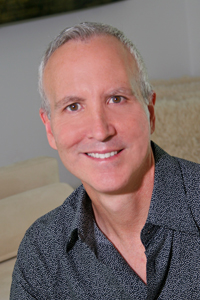
In this new role, Geoff will provide strategic support to state and municipal groups, including helping groups identify opportunities to make legislative and policy advances, develop messaging and public education campaigns, work with coalition partners, and build political support for specific initiatives. He will also support NCLR’s development team, and work with NCLR’s national partners to advance federal legislation and policy to protect LGBTQ people.
Geoff is one of the most accomplished legislative and policy strategists in the LGBTQ movement. Over the past two decades, he has helped enact scores of local and state laws, including helping to pass anti-discrimination laws protecting LGBTQ people and people with HIV/AIDS during his tenure as the Director of the ACLU of Illinois’ Gay and Lesbian Rights and Aids and Civil Liberties Projects from 1994 to 1995, originating San Francisco’s landmark equal benefits law as a board member of the Harvey Milk Club in 1996, and leading Equality California from 2002 to 2011 as the organization passed more than 70 pieces of LGBTQ equality legislation.
Read Geoff’s bio.
Shannan Wilber
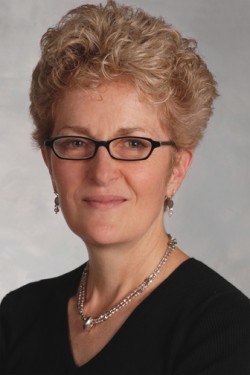
Shannan, currently the executive director of Legal Services for Children, will work to expand the reach and impact of NCLR’s Youth Project, reaching out to the most vulnerable LGBTQ youth across the country and working on their behalf to advance their rights.
Early in her career, she helped launch Legal Advocates for Children and Youth, a California-based agency that now serves hundreds of children a year in state court proceedings. Her experience representing individual children in juvenile court inspired her to join the Youth Law Center, where she engaged in policy advocacy and impact litigation to reform child welfare and juvenile justice systems for nine years.
Since 2001, Shannan has served as the executive director of Legal Services for Children, a nonprofit law office in San Francisco that represents children in foster care, guardianship, education and immigration proceedings. She has a long history with NCLR, having served for many years as a member of our Board of Directors and as co-counsel on cases protecting LGBTQ youth against forced institutionalization and cases asserting the rights of children.
Shannan’s work has been nationally recognized, and she is the recipient of the 2003 Livingston Hall Juvenile Justice Award from the American Bar Association and the 2004 Outstanding Legal Advocacy Award from the National Association of Counsel for Children.
Read Shannan’s bio.
Board Member Gareth Gill
Gareth Duncan Gill is the newest member of NCLR’s Board of Directors. He is a licensed civil engineer, having received a Bachelor of Science degree from Cornell University. He currently works for Vali Cooper & Associates, a construction management and inspection services firm. Prior to that, he spent 20 years working for the California Department of Transportation.
Gareth is a longtime supporter of NCLR. He and his spouse, Julie, have been together for more than 30 years. With the help of NCLR, they obtained relationship protection legal documents in their early 20’s. They had a commitment ceremony at the First Unitarian Church of San Jose for their 20th Anniversary in 2000, were married in San Francisco on Valentine’s Day 2004, and were finally legally married on June 17, 2008.
He transitioned from female to male in 2010, when he legally took Julie’s last name. They currently live in Santa Cruz, CA.
Board Member Andrea Palash
Attorney Andrea Palash joined NCLR’s Board of Directors a few months ago. Andrea is a partner at Pierson, Coats, Palash & Paul in San Francisco.
Andrea obtained her undergraduate degree from the University of California at Berkeley and her law degree from Golden Gate University School of Law. She was admitted to the California State Bar in 1987 and has practiced family law almost exclusively since that time.
She is a Certified Family Law Specialist, a Fellow in the American Academy of Matrimonial Lawyers (AAML) and a past President of the Northern California Chapter of the AAML. She is a former member of the Family and Juvenile Advisory Committee to the Judicial Council of California and the former Chair of the Executive Committee of the Family Law Section of the State Bar of California. She is a current member of the Family Law Sections of the State Bar of California and the Bar Association of San Francisco (BASF).
Andrea has been a speaker for various AAML, State Bar programs, BASF and other county bar associations, and other programs in Family Law and has published numerous articles on various topics related to Family Law. She has been named a “Northern California Super Lawyer” by San Francisco Magazine (2004, 2005, 2006, 2007, 2008, 2009, 2010, 2011, 2012), as one of the “Top 100 Northern California Super Lawyers” by San Francisco Magazine (2006, 2007, 2008, 2009) and as one of the “Top 50 Female Northern California Super Lawyers” by San Francisco Magazine (2006, 2007, 2008, 2009, 2010, 2011, 2012).
Board Member Stacy Parson
Stacy Parson recently joined NCLR’s Board of Directors. Stacy is the Principal at Knowetry Consulting, where she works with leaders and teams to increase their influence, impact, and satisfaction. By addressing the relationship between individual meaning and organizational effectiveness, she helps companies actualize key business results in an accelerated and amplified way, and supports people in making the shift from being High Achievers to becoming Happy High Achievers.
Prior to Knowetry Consulting, Stacy led global employee development at Yahoo!, and was responsible for designing and implementing their first career development framework. Before Yahoo!, Stacy spent 12 years in management consulting, primarily with Deloitte Consulting and Deloitte Services where her expertise in individual and team coaching, individual effectiveness, organizational change, and strategic communications were a powerful combination for developing and executing comprehensive programs that translated business strategy into action and outcomes.
Stacy is a Certified Professional Co-Active Coach (CPCC), completed her MBA at the University of Washington, and holds a degree in Psychology from Stanford University — where she was also a member of the 1990 Women’s Basketball National Championship Team.
She and her partner reside in San Ramon, CA, and have two children.
Back to Top
Support NCLR through eScrip

How about using eScrip?
What is eScrip? It’s a simple way for you to support NCLR at no cost to you. All you have to do is register your credit/debit cards and ATM cards with eScrip—then any time you use one of them to shop with a participating merchant, the merchant will donate up to 8% of the purchase amount to NCLR. That’s right: you pay for only what you’re buying, and the store is the one who donates. Perfect!
NCLR’s Group Name: “National Center for Lesbian Rights” or “NCLR”
NCLR’s Group ID #: 500022336
Over 150 merchants at which you already shop participate, including Whole Foods, Wild Oats, Andronico’s, Mollie Stone’s, Bristol Farms, Working Assets, Sharper Image, Round Table Pizza, Chevron, OfficeMax, Budget Rent-A-Car, Payless Shoes, Orchard Supply Hardware, and many more. Check out the full list of participating merchants.
Register with eScrip online now! Under “Make a difference in 4 easy steps,” click on “Sign up, it’s free!” Your credit card information will only be used for this purpose and is guaranteed to be safe and secure.
Shop at NCLR’s Store
Check out one of NCLR’s favorite designs in our shop! Support the fight for justice with this great image of Lady Liberty and Lady Justice.

